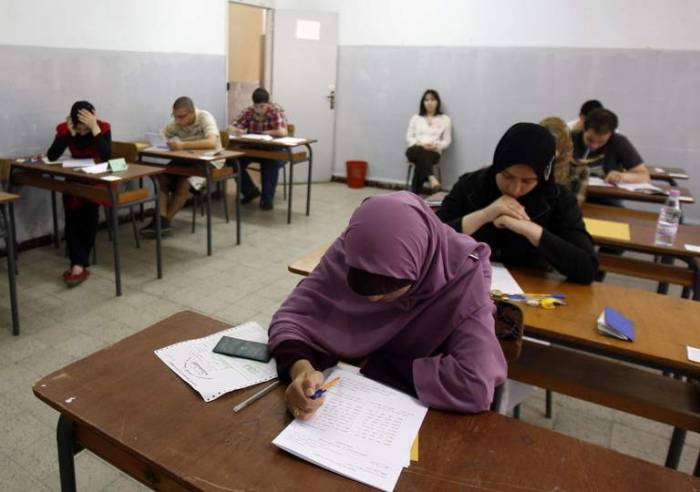Education minister Nouria Benghabrit told Algerian national radio that the internet would be blocked for two hours of each morning as students sit baccalaureate tests nationwide between 20 and 25 June.
Access to Facebook will be cut off completely during the whole period.
It comes after papers for the mandatory high school exams were leaked and shared widely on social media in the last two years.
“We have put in place a technical device that consists of suspending the internet connection and block social networks from Wednesday to prevent the leaking of baccalaureate subjects,” Ms Benghabrit said.
Mobile phone jammers, metal detectors and surveillance cameras have also been installed at 2,000 exam centres across the country.
State-owned telecommunications provider Algeria Telecom said the shutdown was being enforced “in compliance with instructions from the government, aimed at ensuring the high school diploma tests run smoothly”.
Ms Benghabrit told Algerian newspaper Annahar she was “not comfortable” with the decision but “we should not passively stand in front of such a possible leak”.
Iraq is implementing similar restrictions for the third consecutive year as high school students sit final-year tests this month.
The internet will be blocked across the country for two hours each morning during the two-week exam period.
A number of other countries, including India and Ethiopia, have previously cut internet access in bid to combat cheating.
Access Now, a human rights group which campaigns for an open and free internet, has raised concerns about the shutdowns, which it warned could mean “sometimes mean the difference between life and death”.
“They impact many different groups, such as students, teachers, parents, proctors, internet service providers, telecommunications companies, internet companies, testing services, and education agencies, and it’s clear that most of them would prefer an alternative to an internet blackout,” the group said.
There were more than 100 government-mandated instances of deliberate internet disruption last year, according to a recent report the Global Network Initiative, which champions digital rights and opposes online censorship.
The report’s author, Jan Rydzak, said last month: “Shutting down digital communication often disproportionately harms marginalised and vulnerable groups, cripples the local economy, and creates cascades of chaos with consequences we cannot fully fathom.”
















































